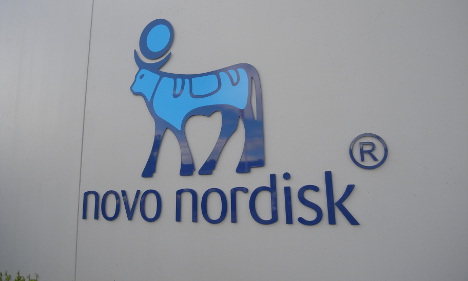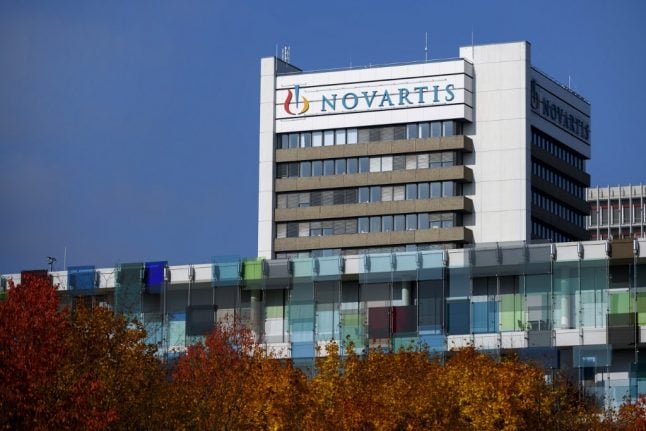In a country where pigs outnumber humans, the story began with “a very early move into industrialisation of agriculture on a scientific basis” leading to an expertise in fermentation, said Allan Kristensen, chief consultant at the Danish Association of the Pharmaceutical Industry (LIF).
To that end, Novo Nordisk was founded in 1923 when insulin was extracted from the pancreatic glands of pigs and cattle.
But its longevity may have more to do with its ownership: The group is controlled by the non-profit Novo Nordisk Foundation, which owns just 24.9 percent of its shares but holds 75.1 percent of the voting rights.
Other Danish pharmaceutical groups like Lundbeck — specialised in psychiatric and neurological disorders — and dermatology treatment maker LEO Pharma have similar arrangements.
Splitting a company's ownership between an industrial foundation and regular shareholders “is a good model because it requires a company to have a short-term and a long-term vision at the same time,” said Lene Skole, chief executive of the Lundbeck Foundation.
For Lundbeck, the patience of the non-profit foundation that controls it had probably been a boon when some of its most valuable patents expired, according to Sydbank analyst Soren Lontoft Hansen.
The ownership structure “helped to protect Danish companies against hostile takeovers by 'big pharma',” said Sven Frokjaer, the vice-dean of the medical sciences faculty at the University of Copenhagen.
A short drive to Denmark's northern neighbour illustrates the perils of being taken over by one of the industry giants: The mood is decidedly less upbeat on the Swedish side of Danish-Swedish life sciences cluster Medicon Valley.
The takeover by Britain's Zeneca of Sweden's Astra in 1999 led to the number of jobs in the sector eventually falling by half, according to data from the Oresund Institute, a Danish-Swedish think tank.
Being listed was an advantage for the company when it was expanding “and the capital need was great,” said the institute's chief executive, Johan Wessman.
“But at the same time it moved the ownership and headquarters out of Sweden,” he said.
Swedish talent is now increasingly looking to Denmark, where medications are the number one export at over €11 billion ($12.5 billion), accounting for 12 percent of last year's total.
The number is expected to double by 2020 according to the Danish Trade Council, having quadrupled since 1999, and 30 percent of private investment in Danish research and development is in the life sciences.
After years of strong growth, the sheer size of Novo Nordisk compared to the rest of the economy largely explains those figures.
On its own, the national champion accounts for two thirds of the employees in the Danish biopharmaceutical sector and for two thirds of private investment in research and development in the life sciences.
Its dominance was “for the benefit of everybody” in the industry since it attracted investment and talent to Denmark, argued the group's head of research and development, Peter Kurtzhals.
That view was echoed by Christian Johansen, a partner at EY in Copenhagen.
“There is a big mobility in the Danish biopharma cluster… It's a very fruitful symbiosis between young and more mature companies,” he said.
Across the nation, the number of people working for private employers in the industry has doubled since 1990, with 26,000 being directly employed and another 64,000 employees working for firms linked to those companies, according to LIF.
Some Danish foundations are also active as venture capital investors, including Novo Nordisk, which has stimulated growth among the country's biotechnology firms.
The foundations also support public research in the country. Since 2007 Novo Nordisk has spent nearly 500 million euros on creating four university research centres in the life sciences in the Copenhagen area.
The company says it's a win-win situation.
“It has created a possibility to attract a number of high-profile international researchers… We have recruited a number of people from these centres,” said Kurtzhals.
Its rapid growth comes with an unusual problem for Novo Nordisk: By 2022 it wants to hire another 5,000 people in Denmark, but the Scandinavian country won't be able to produce enough graduates by then on its own.
Still, industry body LIF lamented the decline in public investment in research in Denmark in recent years.
“The better our figures, the more the politicians say: 'They can manage themselves',” Kristensen said.



 Please whitelist us to continue reading.
Please whitelist us to continue reading.